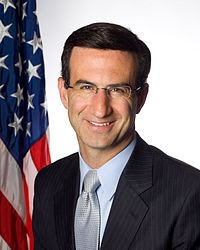Editor's Note: An earlier version of this story incorrectly attributed several quotes. The quotes are from Peter Orszag and Richard Gilfillan.
Going forward, health payers and policymakers must rethink their approaches to accountable care and the Affordable Care Act exchanges, experts said during a panel discussion Monday.

Experts from both the public and private sectors gathered to discuss a series of papers from the National Academy of Medicine (NAM) as part of a symposium.
To save the exchanges, Orszag said, policymakers must pass such fixes as extending the reinsurance and risk corridor programs, which are set to end after this year, as well as dialing back individual coverage for off-exchange plan members.
Another possibility policymakers should consider, Orszag said, would be a personalized, clinically-driven risk score for patients that operates like a credit rating.
Richard Gilfillan, M.D., President and CEO of Trinity Health, also advocated for what he called “Accountable Care 2.0”--a reworking of the accountable care structure that makes it more enticing to providers.
“The difference between now and the 90s is that providers feel good about the accountable care work that’s going on. They want to go there, but the deal’s so bad that many don’t," he said.
He discouraged policymakers from trying to incentivize accountable care by making it mandatory, saying voluntary arrangements would produce better results.
“There’s still a chance to engage our provider system in willingly providing Triple Aim care,” he said, as long as policymakers “put the full force of the federal government behind alternative payment models.”